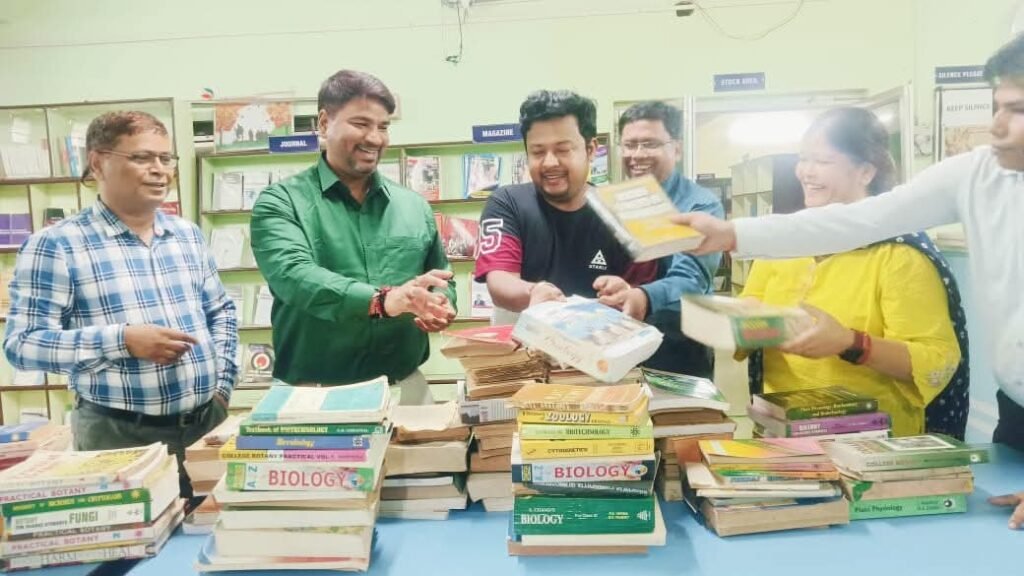Pages of Possibility: Sugama Foundation’s “Books in Every Hand” Lights Up Jamshedpur
In the shadow of Jamshedpur’s steel towers, where the hum of factories often drowns out quieter dreams, the Sugama Foundation turned a simple idea into a small revolution. Their “Books in Every Hand” campaign wasn’t about grand speeches or big budgets—it was about putting a book into the hands of a child who’d never owned one before. Picture a dusty schoolyard in Sidhgora or a cramped lane in Mango, kids in faded uniforms clutching tattered pages, their eyes wide with wonder. That’s where Sugama stepped in, and in just a few weeks, they didn’t just meet their goal of 500 books—they changed the air in this city of grit and grace.

The plan was humble: gather second-hand books and get them to 300 kids across Jamshedpur’s poorer pockets—places like Kadma, Bistupur’s outskirts, and the tin-roofed homes near Telco. They roped in teachers, shopkeepers, and even a few Tata workers who rummaged through their shelves for dog-eared novels and old textbooks. Then came the “reading days”—afternoons where volunteers perched on stools, reading aloud tales of jungles and rockets while kids sat cross-legged, hanging on every word. By the end, 480 books had found new owners, thanks to a last-minute pile from a local library and a handful of donors who couldn’t say no.
I can still see one boy from the stories they told me—Raju, maybe 10, his shirt too big and his feet bare, holding a worn copy of Panchatantra. He’d never had a book of his own; the school’s library was a locked cupboard he wasn’t allowed near. When a volunteer handed it to him, he ran his fingers over the cover like it might vanish. Later, he sat under a neem tree, sounding out words with a friend, stumbling but stubborn. “I’ll finish it,” he said, and you could tell he meant it. That’s what Sugama did here—they didn’t just give out books; they gave out chances.

It wasn’t all smooth. Some books arrived with pages missing, and a rainy day in Sakchi turned a stack soggy. But Sugama rolled with it—drying pages on a clothesline, swapping in extras from a teacher’s stash. They didn’t stop at handing out books, either. In a tin shed off Golmuri Road, they sat with kids and parents, talking about why reading matters—how it’s a ladder out of the hard corners they’re born into. One mother, her hands stained from rolling bidis, said her daughter now reads to her at night. “I never learned,” she admitted, “but she will.”
The numbers stack up: 480 books, 12 reading days, kids from 15 neighborhoods reached. But the real story’s in the ripples. A girl in Burmamines who started a “book club” with three friends, passing around a single copy of Chacha Chaudhary. A father in Adityapur who traded a day’s wage for a pencil so his son could underline words he liked. One volunteer caught a kid by the Jugsalai market, reading aloud to a stray dog—grinning like he’d found a secret. “It’s mine,” he said, tapping the book, and you could hear the pride in his voice.
Jamshedpur’s a city that runs on steel, but “Books in Every Hand” showed it’s got a softer pulse, too. Sugama tapped into that—into the chai stall owners who donated a rupee, the schoolgirls who gave up their old fairy tales, the quiet hope of parents who want more for their kids. They’re already dreaming bigger: a little reading corner near the Subarnarekha River, maybe, where kids can swap stories and sit with a book when the world feels heavy. It’s a long shot, but this campaign proved something—give people a spark, and they’ll fan it into a flame.
For those 620 kids, Sugama didn’t just hand over pages—they handed over possibility. In a town where life can feel like a grind, “Books in Every Hand” carved out a space for dreaming, one story at a time. And in Jamshedpur, that’s a chapter worth turning to.


